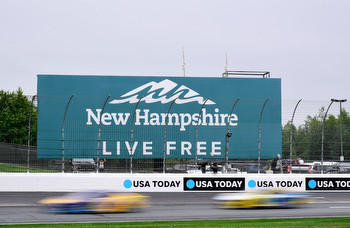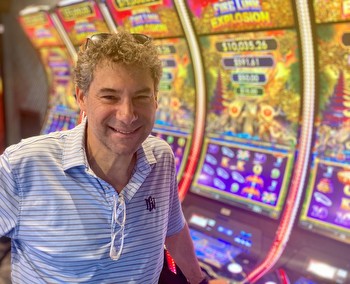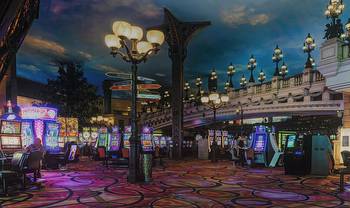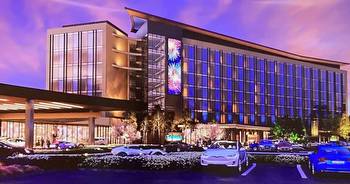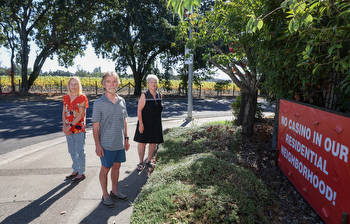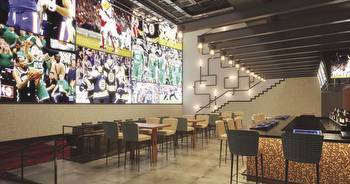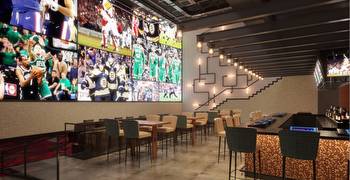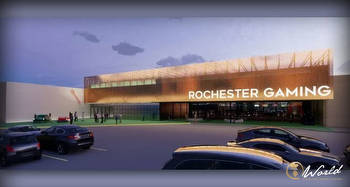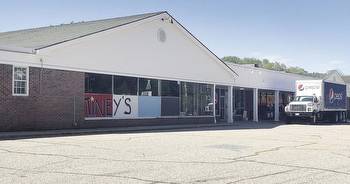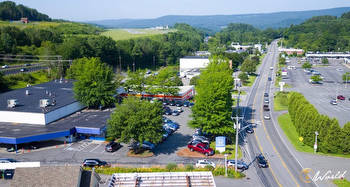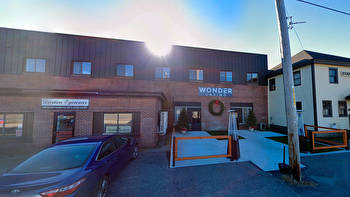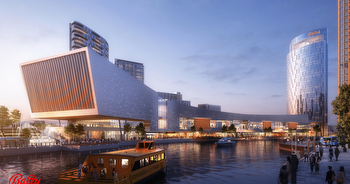Lebanon close to approving casino on Miracle Mile
LEBANON — The city Planning Board is moving closer to approving a “charitable gaming” casino on the Miracle Mile but will first solicit input from the police department before taking a final vote.
On Monday, the Planning Board held a public hearing to consider a proposal by the owners of the Lebanon Poker Room, who seek to relocate their casino at 45 Hanover St. to a larger location at 369 Miracle Mile, a former Honda dealership. The site would be converted into a 41-seat restaurant and bar and a casino with 111 electronic gaming machines and 13 gaming tables, according to a project description submitted to the city in December.
Currently, the Lebanon Poker Room has 35 electronic gaming machines and 11 gaming tables.
Dick Anagnost, co-owner of the Lebanon Poker Room, said the primary purpose of the expansion is to allow the casino to have its own restaurant and bar, which would increase the overall revenue.
The Lebanon Poker Room shares its space with two restaurants, Village Pizza and Peking Tokyo. While both restaurants serve the casino’s patrons, the Poker Room does not receive a revenue share.
“Going forward, we need to share in that revenue to keep existing,” Anagnost told the board.
Under New Hampshire law, “charitable gaming” is a state-regulated category of gambling where 35% of the proceeds must be donated to charitable nonprofits. In New Hampshire, charitable gaming can include poker, bingo and casino games such as roulette and blackjack.
Anagnost also said that another 10% of Lebanon Poker Room’s gaming revenues go to the state.
“We receive 55% of the gross, but we pay 100% of the expenses,” Anagnost said.
The Planning Board voted to continue Monday’s hearing at its meeting scheduled for June 26, when a report is due from Lebanon Police’s evaluating Lebanon Poker Room’s security plan for the proposed expansion.
Board members said they want to be thorough with their decision-making due to public concerns regarding crime and safety. Members were also concerned they had received contradictory information regarding police activity at the Lebanon Poker Room.
Anagnost initially told the board that the Lebanon Poker Room has had “no police calls” during its five years of operation to date. Later in the meeting, he clarified that he was aware of “two calls to the area,” though he did not know whether either investigation led to an arrest.
Anagnost later amended his statement after resident Heather Johnson, speaking during public comments, said the city police logs show 10 calls to the Lebanon Poker Room since 2020.
According to the police log, two calls occurred as recently as April, including about an alleged motor vehicle theft on April 2 and an alleged assault on April 16.
“I think it’s our duty as board members to have all the information that’s available,” said board member Kim Chewning, who advocated for seeking police input.
Deputy Planning and Development Director Tim Corwin said the police department had participated in planning meetings with the applicants during the winter and had the opportunity to review and comment on the plans.
The police did not submit a comment to the Planning Board after the winter meetings, nor had the board previously requested one.
“Generally, the fire or the police really only weigh in when they feel there is something to say,” said board Chairman Matthew Hall.
According to Corwin, it would be difficult for the Planning Board to deny a permit to the applicants because charitable gaming is an allowable use on the Miracle Mile property. However, the Police Department’s feedback could help the board determine if additional conditions are needed to improve public safety.
“If a project meets the regulations, the Planning Board cannot deny an application because they feel it’s not a good idea or not beneficial to the community,” Corwin told the board. “The board can’t prevent this use from going forward. But it can regulate how the site operates to a certain extent.”
Board members said they also want to assure the public that concerns regarding public safety are being addressed.
“I think it’s more important to communicate to the community that we are listening to what they have to say,” said Vice Chairman Jeremy Rutter.
Resident Mike Balog, a former law enforcement officer who worked with casinos in Connecticut, said that he has seen criminal activity result from the impacts of gambling, including vehicle thefts and violent crimes.
“It is true that people like to have the entertainment provided by it, and this is not Las Vegas (but) a small enterprise trying to get a foothold here,” Balog said. “My concern is with the community standards. … The social consequences have not been addressed in this hearing at a level that people (expect).”
Other residents raised concerns that this casino expansion will bring more undesirable elements from outside Lebanon due to its close proximity to Interstate 89.
But Jeffrey Dirk, a traffic engineer from the consulting firm Vanasse and Associates, of Andover, Mass., said the project is not expected to have a significant traffic impact. The charitable casino’s peak hour would be 8 p.m., when other traffic volume on the Miracle Mile has subsided. Dirk estimated a maximum of 75 additional vehicles on the road during the casino’s peak hours, resulting in less than a five-second traffic delay.
The Planning Board approved seven waiver requests from the applicants pertaining to landscaping, drainage, wetland delineation and lighting requirements. In addition, the board approved a conditional use to lease six casino parking spaces at 351 Miracle Mile, an adjacent property owned by Seacoast Harley-Davidson, an ownership group based in North Hampton, N.H. The additional parking spaces are needed to meet the city’s minimum parking space requirement for the proposed facility.
The hearing will resume on Monday, June 26, at 6:30 p.m. at City Hall.








